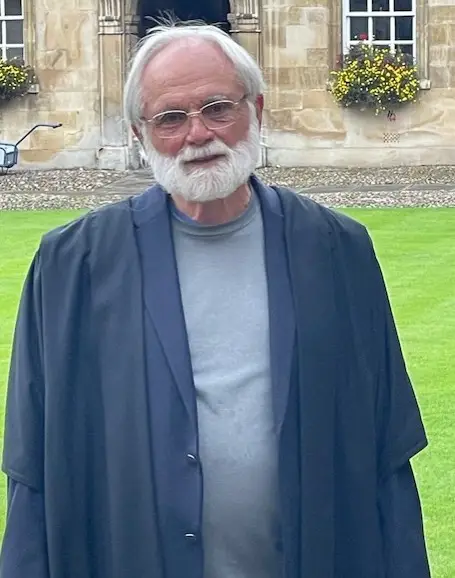Nolt Researching New Book on Environmental Ethics

The Schweitzer Institute for Environmental Ethics has awarded Professor Emeritus John Nolt from the University of Tennessee, Knoxville, a research fellowship at the University of Cambridge this fall.
The philosopher and environmental ethicist is writing a book in which he aims to develop a conception of the welfare of all life on Earth.
“We already have good conceptions of the welfare of animals, including wild animals, but the rest of nature is usually evaluated just under the broad heading of biodiversity,” Nolt said. “My approach is more fine-grained than that. The point is to foster an understanding not only of patterns of diversity but also of health and welfare at the level of individual life forms.”
Nolt will discuss his work during a conference at Cambridge co-sponsored by the Schweitzer Institute and the Centre for Animals and Social Justice, titled “Ecocentric Ethics: Exploring Our Responsibilities to Non-Human Animals and the Environment.”
Then he will deliver a seminar on the welfare of life at Durham University, followed by a lecture for the Schweitzer Institute that Nolt said will discuss misconceptions caused by humanity’s pervasive tendency to see itself at the center of things.
Nolt, who retired in 2018 from the Department of Philosophy and published his most recent book in 2022, was one of six finalists the institute interviewed for the fellowship, which includes a research associateship at Peterhouse, the oldest college at Cambridge.
“I had been writing my book at a leisurely pace, but this fellowship has supercharged the process,” he said. “It’s extraordinarily stimulating to be at this great and ancient university and to talk with high-powered people across a wide variety of disciplines.”
“My time here is divided among writing, social events—usually with lively conversation—walks, bike rides, and yoga,” said Nolt, who was looking forward to a long bike ride with other philosophers and philosophy graduate students.
Nolt also has served as a research fellow in the Energy and Environment program at the Howard Baker Jr. Center for Public Policy. Asked if he plans to teach again after returning from England, he said, “I retired from teaching in 2022 and don’t plan to teach classes again—but who knows? Six months ago I wasn’t planning to come to Cambridge.”
By Amy Beth Miller